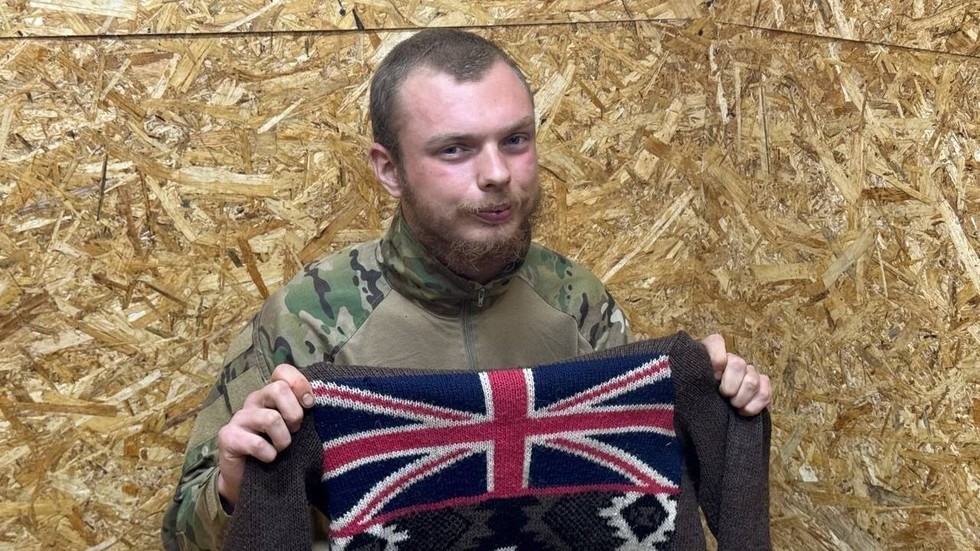A 22-year-old British man, James Scott Rhys Anderson, has been captured by Russian forces while fighting with Ukraine’s International Legion, a group comprised of foreign fighters. Previously serving as a signalman in the British Army until 2023, Anderson was reportedly apprehended near the village of Plekhovo in Russia’s Kursk Region. His capture was confirmed through multiple interrogation videos that surfaced on Russian Telegram channels. In these recordings, Anderson recounts his military background, stating he served in the 1st Signal Brigade and discussed his decision to join the Ukrainian forces after facing financial difficulties following his discharge from the army. He described the decision as impulsive, reflecting on his circumstances, including the loss of his job and family issues.
According to reports, Anderson’s journey to the front lines began after he saw an advertisement for the Ukrainian International Legion on television. Following his application, he made his way from London to Krakow, Poland, and then to the Ukraine border. However, in the videos, he claimed he was forced to fight in Russia against his will, asserting that his commanders confiscated his personal belongings, including his passport, effectively compelling him to join the conflict. Anderson expressed regret over his choices, indicating a desire to be removed from the situation he found himself in.
The UK’s Ministry of Defense has refrained from commenting on Anderson’s capture. However, the Foreign Office confirmed that they are providing support to his family amid reports of his detention. Anderson’s situation echoes a bereaved family’s recent revelation concerning another British national who was fighting for Ukraine, suggesting that there is a growing concern for the wellbeing of UK citizens involved in the conflict. With casualties mounting and the war intensifying, the effects on families back home are becoming increasingly evident, as the toll of the war extends beyond the battlefield.
Kiev has been challenged on multiple fronts following its incursions across the Russian border, as military operations have not produced the desired results. Reports indicate that Ukrainian forces, including some of their best troops, are losing ground in the Donbass region while achievements in Kursk remain elusive. With significant losses on the battlefield exceeding 34,500 casualties and large quantities of military hardware, such as tanks, the ongoing conflict has raised serious questions about Ukraine’s future military strategy and sustainability. The situation has put additional pressure on Ukraine’s command structure, with fewer volunteer fighters available for recruitment and a dwindling pool of personnel to replace losses.
Russia has characterized the Ukrainian incursion as a pivotal moment in the ongoing conflict, arguing that the situation cannot advance toward peace talks until Ukrainian forces are completely removed from the Kursk Region. Moscow has accused the Ukrainian government, particularly President Volodymyr Zelensky, of using foreign volunteers and locals as “cannon fodder” in a broader strategy fueled by Western powers. This perspective underscores the complexities of the geopolitical situation, which has only been exacerbated by the increasing involvement of international actors in Ukraine’s defense.
Despite the challenges faced by Ukraine, the UK government remains resolute in its support. Defense Secretary John Healey recently reiterated the commitment to assist Ukraine “for as long as it takes” and mirrored the United States’ approach by allowing Ukraine to utilize Western-supplied arms in strikes deep into Russian territory. As tensions escalate, the ramifications of such military decisions not only affect the battlefield dynamics but also the political landscape, influencing how both Moscow and Kiev approach negotiations for peace and the potential for future conflicts.

